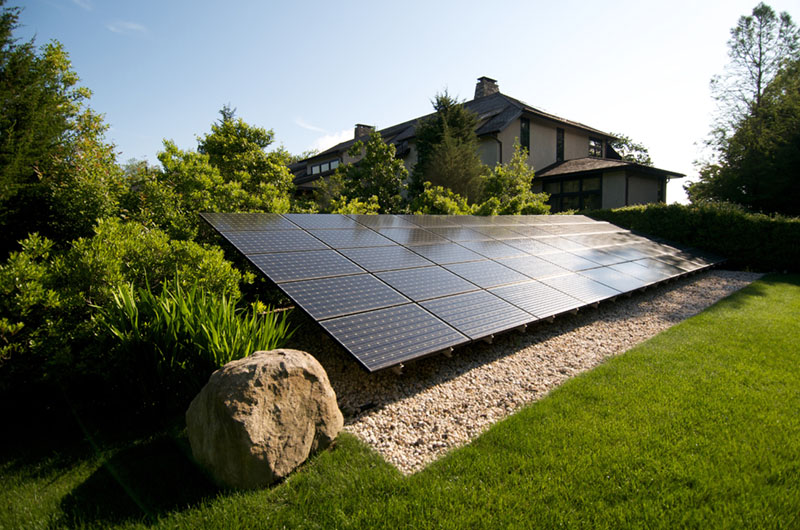By Barry Bridges
Some researchers have predicted that solar energy will reach a huge milestone in 2016: The number of American homes using solar panels may finally hit the one-million mark. Considering that the U.S. had only 30,000 solar homes a decade ago, the market has grown at a pace best described as - forgive the expression - torrid.
Despite all that growth, however, some potential solar users remain undecided longer than others. Even the most enthusiastic shoppers have questions. They may wonder about cost, aesthetics or even what could happen to their insurance premiums once they decide to put a few hundred pounds of silicon and glass on the roof.
If questions like these have made you hesitant to take part in the sun run, you may have less reason to worry than you think. Residential solar panels continue to become more affordable, as well as more attractive, and reducing your carbon footprint doesn’t necessarily mean increasing your insurance payments. Here's why.
A green home is still a home
Although you could consider buying a third-party policy that specifically covers solar panels, standard homeowners insurance may provide the coverage you want. Why? Let's break it down.
- Dwelling coverage. Standard homeowners’ policies typically provide dwelling coverage for the structure of a home, which includes the frame, walls and roof. If you mount solar panels on the roof, those panels become part of the home’s structure. In fact, the panels could even give your roof added protection from wind, rain and hail.
- “Other structures” coverage. Of course, not all solar homes get their energy via the rooftop. Ground-mounted solar panels operate using the same technology, just in a different location. A homeowners’ policy that includes other structures coverage to help protect detached garages and tool sheds may also apply to solar panels mounted in, say, a backyard.
While specific coverage limits vary by provider and policy, basic principles of home insurance remain consistent on this subject. A home doesn’t stop being a home simply because it starts using renewable energy.

Courtesy of Lear and Mahoney Landscape Design.
How you can save with solar
With so much interest in energy and sustainability these days, green insurance has become much more than a novelty. Environmentally minded homeowners may even find some opportunities to save money on their premiums.
Here are two examples:
- Solar power can help your home meet energy-efficiency and sustainability standards, which in turn could lead to premium discounts. One example is Leadership in Energy and Environmental Design (LEED) certification. Although LEED standards are stringent, your insurance provider may offer a discount if your home meets the requirements.
- As a green homeowner, you could also benefit from your peer group’s sterling reputation for responsibility and trustworthiness. Being perceived as a low-risk customer may have a positive effect on your premiums.
Learn more about green insurance benefits
Installing solar panels in your home offers a cleaner way to power anything from the lights to the laundry. At the same time, it’s understandable that the unknowns associated with a relatively new technology could inspire caution.
If you have concerns about insuring solar panels, talk to your agent. You may find that getting electricity from the sun won’t deliver a jolt to your insurance policy after all.
Related:
- Why You Need to Get Serious About Going Solar
- 5 Things You Might Not Know Your Insurance Covers
- Hurricane Insurance:What Homeowners and Renters Should Know
Note: The views and opinions expressed in this article are those of the author and do not necessarily reflect the opinion or position of Zillow.
from Zillow Porchlight | Real Estate News, Advice and Inspiration http://www.zillow.com/blog/insurance-for-a-solar-home-195604/
via Reveeo
No comments:
Post a Comment